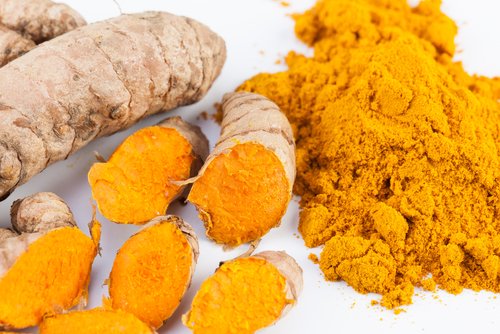Essential turmeric oils (ETOs) can boost anti-inflammatory activity and significantly reduce colitis symptoms in experimental mouse models, finds a study suggesting that combined treatment of curcumin and ETOs is more powerful than curcumin alone in the fight against colitis.
“This is the first study that highlights the superiority of curcumin combined with essential turmeric oils over standard curcumin,” Ajay Goel, the report’s senior author, said in a press release.
The study, “Essential turmeric oils enhance anti-inflammatory efficacy of curcumin in dextran sulfate sodium-induced colitis,” recently appeared in Scientific Reports.
Traditional Chinese doctors have used turmeric for centuries to treat an array of illnesses including anorexia, cough, hepatic and rheumatic ailments, and many other chronic inflammatory diseases. Curcumin, which is extracted from turmeric, is the main active element whose anti-inflammatory and anti-cancer proprieties have recognized therapeutic potential.
Recent studies have provided enough data to suggest that besides curcumin, other constituents of turmeric, known collectively as ETOs, may also possess anti-inflammatory and anti-oxidant properties that could be used in drugs. However, body tissues absorb ETOs poorly, which makes it hard to give patients. Combining ETOs with curcumin, however, improves ETO absorption.
In the present study, researchers at Baylor University Medical Center in Dallas compared the therapeutic potential of the ETO-curcumin combination to standard curcumin in a clinical setting of colitis.
They found that both treatments alleviated inflammation symptoms in animal models of colitis. In addition, overall disease activity index was found to improve in animals treated with cucumin-ETO — as seen by their reported healthy body weight — leading to less severe intestinal bleeding. This beneficial effect was even more pronounced at higher doses of ETO-curcumin treatment. However, increasing the dosage of curcumin alone did not influence the animals’ treatment response.
“We have shown that although curcumin works in this animal model of colitis, the essential oils delivered with the curcumin make it much more effective. There is a growing body of data that indicate that the essential turmeric oils, containing compounds called turmerones, also possess significant anti-inflammatory properties,” said Goel, who is director of both the Center for Gastrointestinal Research and the Center for Translational Genomics and Oncology at Baylor.
Analysis of colon tissue from treated and untreated animals showed that indeed, ETO-curcumin was able to increase several known molecular inhibitors of the inflammatory process in colitis such as IL-10, IL-11 and FOXP3.
“Collectively, these data indicate that ETO-curcumin resulted in superior anti-inflammatory effects compared to standard curcumin, suggesting that the presence of ETO may synergistically enhance the bioactivity of curcumin in the colon,” Goel concluded.

